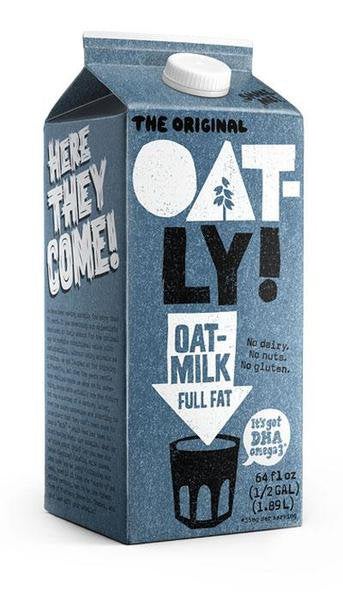
This is probably going to be an unpopular opinion but I want to make a teaching moment here and take a quick look of their ingredients shows this to be true.
* https://us.oatly.com/products/full-fat-oatmilk-chilled
>Oatmilk (water, oats), low erucic acid rapeseed oil. Contains 2% or less of: dipotassium phosphate, calcium carbonate, tricalcium phosphate, sea salt, dicalcium phosphate, DHA algal oil, sodium ascorbate (antioxidant), tocopherols (antioxidant), riboflavin, vitamin A, vitamin D2, vitamin B12.
The second ingredient “low reucic acid rapeseed oil” or in the US often called canola oil, makes a big impact. Oats are 15% fat by calories food, hence it’s milk should be the same. Yet:
* 1 cup FF Oatly
* Calories – 160
* Fat – 9 g = 81 calories
If the drink were purely oats, one would expect 15% fat from calories, it would be about 24 in this case but here it’s 81 because of the canola oil, making this a 50.6% fat by calories product. Since the oat calories portion can only compromise 79 calories, the oat fats tally to 12 calories and 69 will be canola oil, a little more than half a tablespoon oil in each cup.
In wfpb accepted milks, you will expect to find macros roughly similar to their host food (almonds to almond milk, say) except the subtraction of most fiber.
I tried making “oat milk” at home in a power blender, it’s a watery concoction. Probably could be saved with some cashews, almonds, etc.
The post is not to control what people are eating, but rather not fool themselves that these products are as healthy as the rest of their diet.

Dining and Cooking